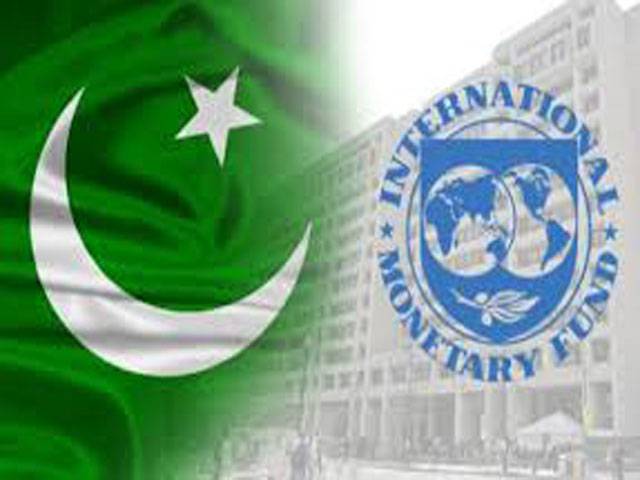LAHORE - The country is likely to face serious balance of payments problems due to depleting foreign exchange reserves and weakening local currency against the US dollar, which will force the new government to approach the international lenders, especially IMF, for financial assistance.
Noted economist Dr Ashfaq Hassan Khan and other experts warned that the widening current account deficit would worsen the financial condition by the end of current fiscal year 2018-19 and force the next elected government to approach the International Monetary Fund again for another bailout package. He said that the government measures would not have sufficient impact to wipe out the growing deficit and not a proper substitute to address the structural problems. He said that concerns have already been expressed by the central bank and multilateral institutions about the deteriorating situation in the external sector.
Experts said that Pakistan has already borrowed at least $1.2 billion from China and Middle Eastern banks in April-May to help bridge a $3 billion gap of current fiscal year.
They said that government will require about $3 billion during next four months to make payments to creditors including the IMF, World Bank, Paris Club and China, which would weaken the rupee and widen trade deficit further.
Experts said the fast depleting foreign exchange reserves of the central bank, dropping to a four-year low of $10 billion and low inflows on account of sluggish exports, will force the upcoming elected government to let the rupee further depreciate in a bid to give a boost to exports and attract higher inflow of remittances.
The UBG chairman and FPCCI former president Iftikhar Malik observed that the value of the Pakistani rupee, which plunged over 9pc against the US dollar due to a bulging current account deficit, will increase due to investments in the China-Pakistan Economic Corridor.
He said the real solution of the problem is to increase productivity in the economy and improve competitiveness of Pakistan’s exports in the international market.
He called for actively engaging the Pakistani workforce in CPEC in order to provide them first-hand knowledge, experience and engineering being applied by Chinese experts. He said once the project is fully functional, foreign direct investments in key areas are likely to pour into Pakistan, resulting in greater opportunities for both countries.
Iftikhar Malik said Pakistan is destined to become centre of Asian trade and business activities due to the China Pakistan Economic Corridor. He said the country is destined to achieve progress and prosperity but to achieve this goal, political stability, hard work and commitment are needed.
REAP chairman and GCCI former president Samee Ullah Ch said that Pakistan’s economic picture was considered rosy until the past year, as the government managed to boost economic growth. But that was supported by low oil prices, the completion of a $6.6 billion IMF programme in 2016 and the Chinese financing of about $60 billion in infrastructure through CPEC.
He said that the growth boom has come with rising imports of Chinese machinery, widening current account deficit by 50 percent. He added that it would also mount debt, raising question how the next governments will repay billions of dollars in the long term. Samee Ullah Ch said that surging oil prices are making matters worse, as the balance of payments has further deteriorated.
Former finance minister Dr Salman Shah said that Pakistan currently has $210 billion (external debt of over $85 billion) in total debt which is almost 70 percent of its gross domestic product. Pakistan is now faced with a weakening dollar-rupee exchange rate, thus making foreign debt even more expensive for the country. Dr Salman Shah said there is a debt limitation act called Fiscal Responsibility and Debt Limitation Act, which says that overall debt should not exceed 60%.
Aptma chairman Aamir Fayyaz said the CPEC is going to provide enormous opportunities to Pakistani youth. He also said the country cannot afford any political instability.
He said the current business models needed to be replaced with new and innovative ones in order to oversimplify the business culture and attract more locals to take risk of investing in every sector and laying down the foundation of powerful economy.
LCCI former president Abdul Basit said that the country’s economy is moving forward and growth rate is set to touch 6pc mark. He said the country’s exports increased due to better fiscal policies.
Noted economist Dr Hafiz Pasha said that the foreign debt is being driven by a very large current account deficit because the trade deficit is ballooning. He said investments are not coming while remittances do finance the trade deficits to an extent.
Pakistan Forex Association President Malik Bostan pointed out that renewed pressure on the rupee came in the wake of heavy additional demand for foreign currencies from Umrah pilgrims these days. The expected depreciation has prompted many to hoard dollars for a better return later. In addition to this, the central bank’s new condition for foreign currency buyers and sellers to show ID card for buying and selling of over $500 has also slowed down the flow of dollars to the dealers.






